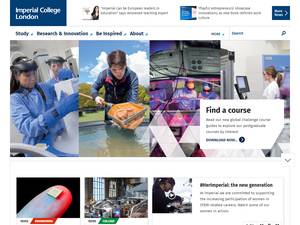This scholarship is funded by Swansea University.
Subject areas: Materials Science, Physics, Chemistry, Chemical Engineering, Electrochemistry
Start date: October 2018
Energy sustainability is an emerging issue to date due to huge consumption of fossil-fuel sources (coal, natural gas, liquid fuel) in domestic and industrial sectors. The artificial photosynthesis process is a promising route to convert the solar energy into fuel and electricity. In this line, developing earth abundance, less expensive semiconductor materials perceive great attention owing to their potentiality in photoabsorbance, and catalytic activity towards transforming solar energy in to fuel generation using water and pollutant. This project aims to maximise the solar light harvesting to the photoelectrocatralysis reaction through introducing nanostructured visible light semiconductors (modified TiO2, WO3, BiVO4, CdS, CuO, NiO, etc – powder and film form). In first phase, these materials will be prepared through integrated physio-chemical approach (spray coating, screen printing, and hydrothermal technique). In second phase, wide-range of co-catalyst materials will be deposited onto these visible light semiconductors. The resultant nanostructured hybrid semiconductor electrodes were to be tested in photoelectrochemical (PEC) water splitting process and quantifying the fuel output (oxygen and hydrogen). In final stage, the prototype electrodes will be tested in pilot scale flow-type PEC cells. In this stage, different types of water pollutant will be tested in the PEC cells. The major challenges of a) understanding the photocharge carrier transfer mechanism at electrode/pollutant interfaces and b) origin of photocorrosion in the electrode will be exclusively examined in this project. These findings would be significant to researchers interested in identifying alternative routes in designing the champion, low-cost photocatalyst/photoelectrocatalyst towards solving the future energy crises.
This exciting project will be demonstrated under joint collaboration with Professor James Durrant’sresearch group, Imperial College London. The successful applicant will work under the supervision of Professor James Durrant and Dr Sudhagar Pitchaimuthu. The student will have the opportunity to acquire a range of skill sets including nanomaterial synthesis, chemical analysis (GC-MS, HPLC) from other collaborators (University College of London). The successful student will also utilise our world-class facilities available at SPECIFIC, College of Engineering, Swansea University.


 Established in 1907, Imperial College London is a non-profit public higher education institution located in the urban setting of the metropolis of London (population range of over 5,000,000 inhabitants). Officially accredited and/or recognized by the Privy Council, Imperial College London is a large (uniRank enrollment range: 15,000-19,999 students) coeducational higher education institution. Imperial College London offers courses and programs leading to officially recognized higher education degrees such as bachelor degrees in several areas of study. See the uniRank degree levels and areas of study matrix below for further details. International applicants are eligible to apply for enrollment.
Established in 1907, Imperial College London is a non-profit public higher education institution located in the urban setting of the metropolis of London (population range of over 5,000,000 inhabitants). Officially accredited and/or recognized by the Privy Council, Imperial College London is a large (uniRank enrollment range: 15,000-19,999 students) coeducational higher education institution. Imperial College London offers courses and programs leading to officially recognized higher education degrees such as bachelor degrees in several areas of study. See the uniRank degree levels and areas of study matrix below for further details. International applicants are eligible to apply for enrollment.